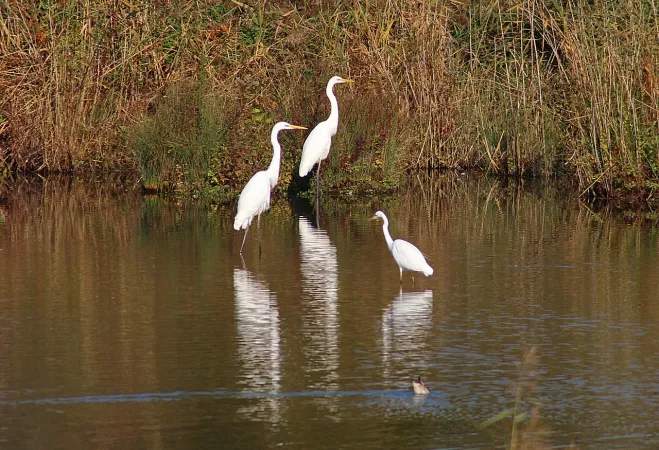
Chapramari Wildlife Sanctuary
Duration
1 to 2 Days
1 to 2 Days
Best time to visit
Oct-May
Oct-May
Theme
Wildlife
Wildlife
Chapramari Wildlife Sanctuary Travel Guide
Chapramari Wildlife Sanctuary is a renowned destination in India known for its rich biodiversity and stunning natural landscapes. Located in the foothills of the Himalayas in West Bengal, this sanctuary is a haven for wildlife enthusiasts and nature lovers. The sanctuary is home to a variety of flora and fauna, including elephants, tigers, and deer. Its lush greenery and tranquil atmosphere make it a perfect retreat for those looking to connect with nature.Top Attractions in Chapramari Wildlife Sanctuary
- Elephant Safari
- Bird Watching
- Jungle Trekking
- Photography Opportunities
- River Rafting
Chapramari Wildlife Sanctuary is Famous for
Its diverse wildlife and pristine natural beauty.Top Attractions in Chapramari Wildlife Sanctuary
- Elephant Safari
- Bird Watching
- Jungle Trekking
- Photography Opportunities
- River Rafting
What's Great about Travelling to Chapramari Wildlife Sanctuary?
- Perfect for nature lovers
- Unique wildlife experiences
- Great photography opportunities
- Peaceful and serene environment
What's Not So Great about Travelling to Chapramari Wildlife Sanctuary?
- Limited accommodation options
- Remote location
- Weather can be unpredictable
- Not suitable for luxury travelers
Travel Tips for Chapramari Wildlife Sanctuary
- Obtain necessary permits for entry
- Wear comfortable clothing and sturdy shoes
- Respect the wildlife and follow park rules
- Carry insect repellent and sunscreen
Important Chapramari Wildlife Sanctuary trip information
- Ideal Duration: 2-3 days
- Best Time to Visit: October to March
- Nearby Airports and Railway Stations: Bagdogra Airport and New Mal Junction Railway Station
FAQ's on Chapramari Wildlife Sanctuary
Q1: What is the best time to visit Chapramari Wildlife Sanctuary?
The best time to visit Chapramari Wildlife Sanctuary is during the winter months from November to February when the weather is pleasant, and wildlife sightings are more frequent. It is also recommended to avoid the monsoon season from June to September due to heavy rainfall which may disrupt travel plans.
Q2: Do I need a visa to travel to Chapramari Wildlife Sanctuary?
As Chapramari Wildlife Sanctuary is located in India, tourists may need to obtain an Indian visa before traveling, depending on their nationality. It is advisable to check with the Indian embassy or consulate for specific visa requirements and any exceptions for wildlife sanctuaries.
Q3: What are the must-visit attractions in Chapramari Wildlife Sanctuary?
Chapramari Wildlife Sanctuary is known for its rich biodiversity and offers opportunities for wildlife safaris to spot elephants, deer, birds, and if lucky, even tigers. Must-visit attractions include the watchtower for panoramic views of the sanctuary, the Murti River for birdwatching, and the lush forests for nature walks.
Q4: Is Chapramari Wildlife Sanctuary a safe place to travel?
Chapramari Wildlife Sanctuary is generally a safe destination for travelers. It is essential to follow safety guidelines provided by park authorities, avoid straying from designated paths, and not disturb the wildlife. As with any wildlife sanctuary, it is recommended to stay cautious and respect the natural habitat.
Q5: What is the local currency in Chapramari Wildlife Sanctuary and can I use credit cards?
The local currency in Chapramari Wildlife Sanctuary is the Indian Rupee (INR). While credit cards may be accepted at some hotels or larger establishments, it is advisable to carry sufficient cash for smaller purchases or transactions. Limited ATM facilities are available in nearby towns.
Q6: What is the local cuisine like in Chapramari Wildlife Sanctuary?
The local cuisine in Chapramari Wildlife Sanctuary offers a mix of traditional Indian dishes with influences from the region. Popular dishes include rice, dal (lentils), vegetables, and meat curries. Travelers can also savor local sweets, snacks, and refreshing beverages. Vegetarian and non-vegetarian options are widely available.
Q7: What transportation options are available in Chapramari Wildlife Sanctuary?
Transportation options in Chapramari Wildlife Sanctuary include private vehicles, guided safari tours, and local buses or taxis from nearby towns like Malbazar or Jalpaiguri. Safari jeeps are the preferred mode of transport within the sanctuary for wildlife viewing. It is recommended to book transportation in advance, especially during peak tourist seasons.
Q8: Are there any cultural norms or etiquette I should be aware of when visiting Chapramari Wildlife Sanctuary?
When visiting Chapramari Wildlife Sanctuary, it is important to respect local customs and traditions. Avoid littering, maintain silence during wildlife sightings, and follow the instructions of park guides. Dress modestly, especially when visiting religious sites nearby. Interacting with wildlife or feeding them is strictly prohibited for the safety of both animals and visitors.
Q9: I am a travel agent. How can I buy travel leads of Chapramari Wildlife Sanctuary?
Register yourself as a travel agent at agents.tripclap.com and then you can buy travel leads to Chapramari Wildlife Sanctuary once your account is approved. For more details contact our support team at +91-8069186564 or support@tripclap.com
